Hi there, pet lovers! 🐔
Guinea fowl are fascinating birds that offer a unique combination of beauty, functionality, and entertainment for any backyard flock. Native to Africa, these birds have become popular worldwide due to their excellent pest control, distinctive appearance, and the lively dynamics they bring to mixed flocks.
In this comprehensive review, we’ll cover everything you need to know about raising guinea fowl, from their behavior and care requirements to their dietary needs and potential drawbacks. Whether you’re considering adding them to your backyard or simply curious about these birds, this guide will provide the essential information to make an informed decision.
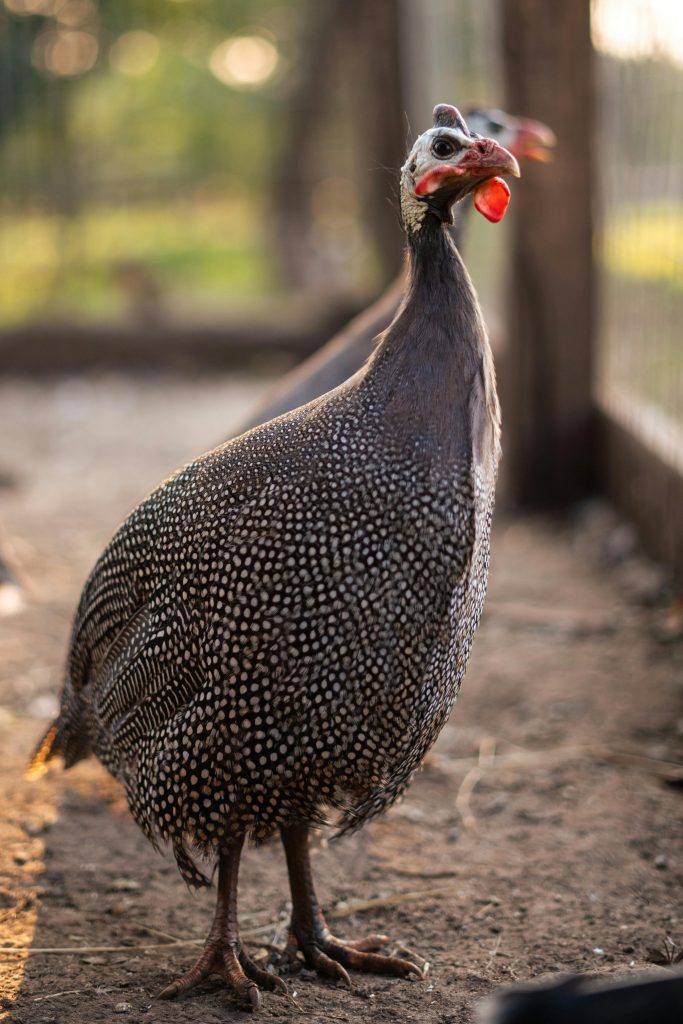
Overview
Guinea fowl are medium-sized birds known for their distinctive spotted feathers and social flocking behavior. They are hardy, efficient foragers, and highly alert, making them ideal for pest control and predator awareness. Here’s a quick summary of what makes them stand out:
- Handling and Temperament: Generally more independent and less affectionate than chickens; males can show aggression, especially during mating season.
- Care and Maintenance: Low-maintenance but require space, appropriate feeding, and secure housing for younger birds.
- Health and Durability: Relatively hardy; susceptible to some predation risks due to their free-ranging nature.
- Availability: Widely available through breeders and hatcheries.
- Cost: Affordable to acquire; feed consumption is moderate but manageable.
- Overall: A unique, productive, and entertaining addition to a backyard flock, particularly for homesteads with pest control needs or predator concerns.
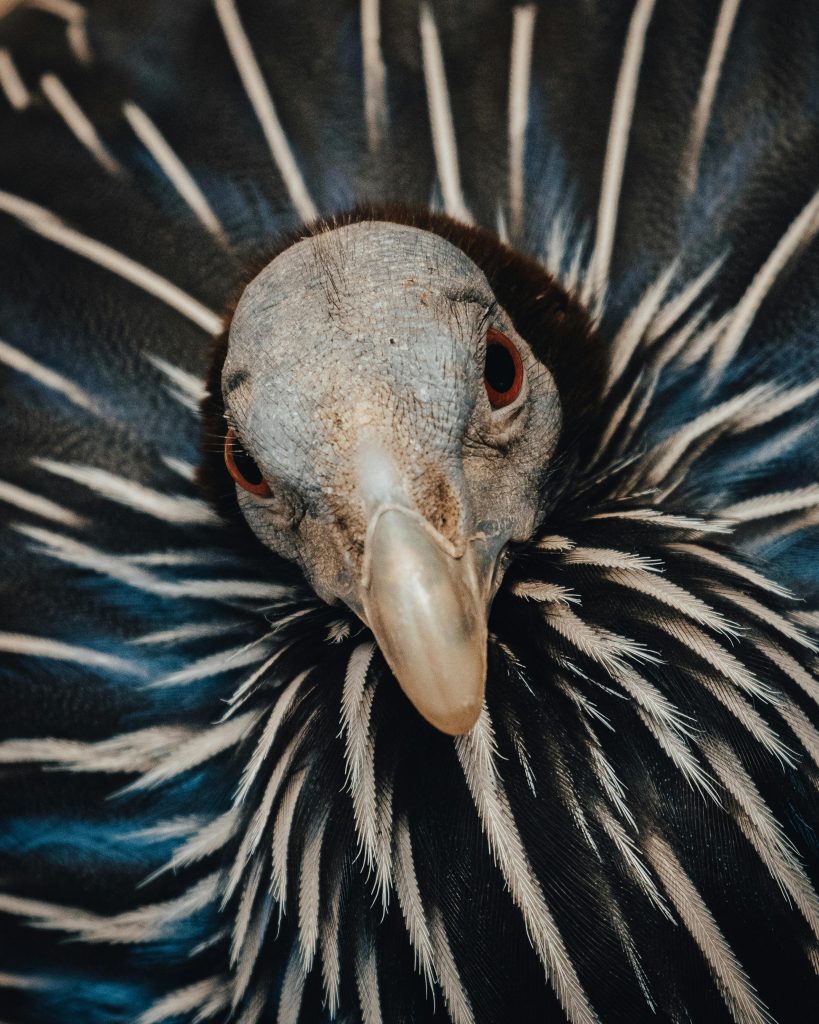
Why Choose Guinea Fowl?
Guinea fowl are ideal for homesteads looking for functional birds that serve multiple purposes. They are excellent foragers, consuming ticks, insects, and small pests while also contributing fertilization to the soil. Their alert nature makes them natural alarm systems, warning of predators or unusual disturbances. Additionally, they provide eggs and lean, flavorful meat for households looking to diversify their poultry output.
Their striking appearance, with polka-dotted feathers and bold behavior, also adds visual interest and entertainment. With lifespans ranging from 10 to 15 years, guinea fowl offer long-term benefits, making them a rewarding choice for dedicated backyard poultry keepers.
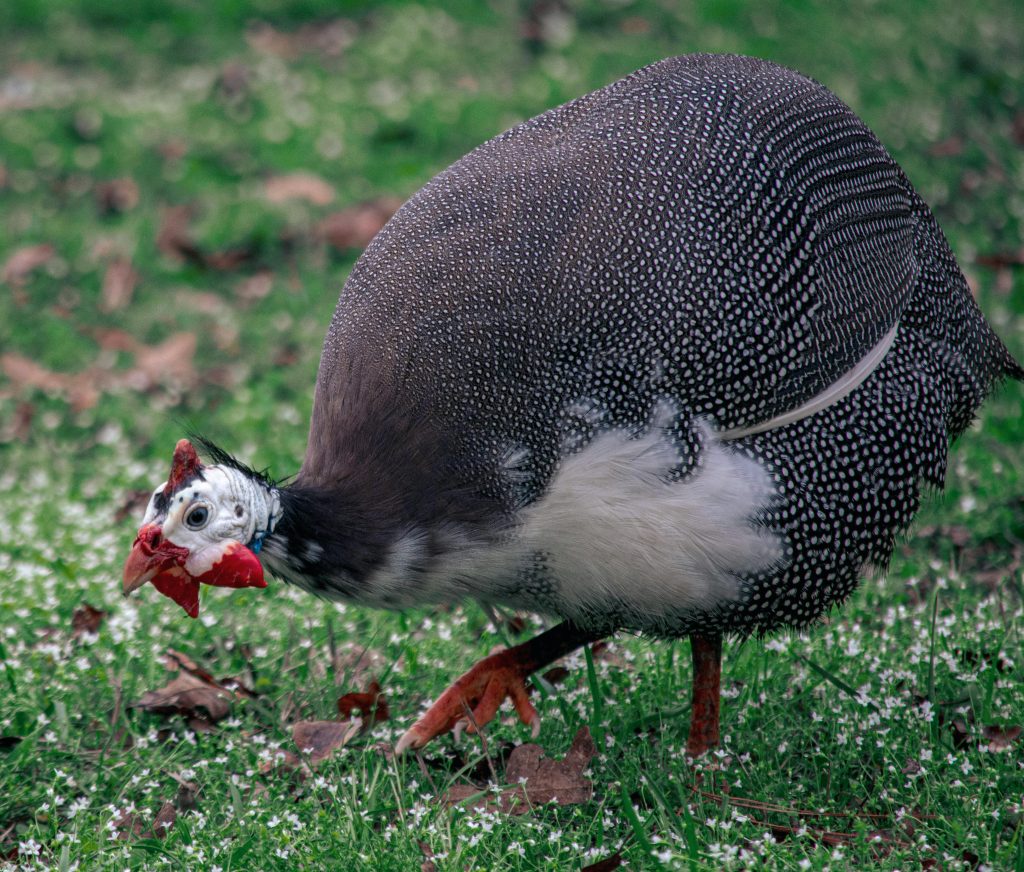
Handling and Temperament
Guinea fowl have unique personalities and social structures. They are flock-oriented, often staying together in groups, and are more independent than chickens. Handling should be done gently, particularly with males during mating season, as aggression can occur over food or territory.
Personality Variations:
- Males can become assertive or aggressive, especially if not raised with a balanced ratio of females (recommended 1 male to 5 females).
- Females are generally calmer and focused on foraging and egg-laying.
- Keets (baby guinea fowl) raised with chickens or other poultry integrate better into mixed flocks.
Handling Tips:
- Always approach slowly and avoid sudden movements.
- Limit handling of males during breeding season to prevent stress or aggressive behavior.
- Allow guinea fowl to freely roam, as they are more comfortable when they can forage and interact with their flock.
Biting and Aggression:
- Guinea fowl rarely bite humans, but males may chase or chase away other birds during territorial disputes.
- Aggressive behavior is part of their natural instincts for protection and hierarchy maintenance.
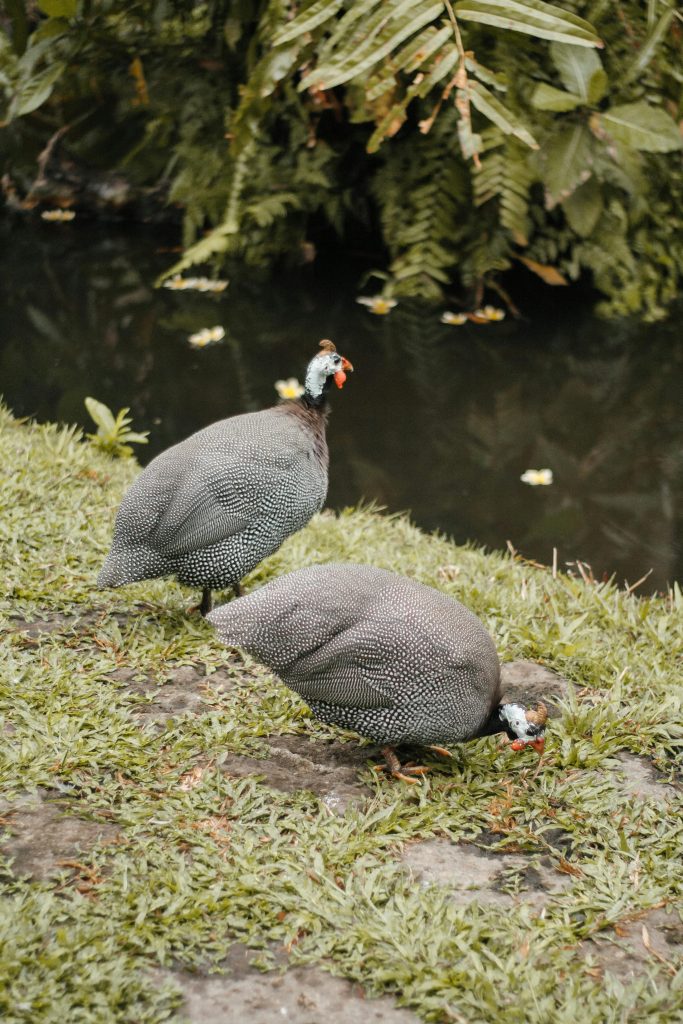
Care and Maintenance
Guinea fowl are relatively low-maintenance but have specific needs that must be met for a healthy flock.
Enclosure Setup:
- Size: For a small backyard flock, allow at least 4–5 square feet per bird inside a coop, with plenty of outdoor range.
- Roosting: Guinea fowl prefer high perches; they may roost in trees if left unchecked, so providing high perches within a secure coop is ideal.
- Integration: Raising keets with chicks can help them bond with a mixed flock. Adult guinea fowl can coexist with chickens but may need an acclimation period of 4–7 days in a separate area before free-ranging together.
Feeding:
- Keets: Use turkey starter or high-protein chick starter for the first 4 weeks. Avoid medicated feed, which is toxic to guinea fowl.
- Adults: Feed a high-protein layer pellet (around 18–22%) alongside free-ranging opportunities.
- Dietary Additions: Guinea fowl forage extensively, consuming insects, ticks, small snakes, seeds, and weeds, reducing feed costs.
Water:
- Provide constant access to clean water, particularly during hot weather or when free-ranging.
Temperature and Environment:
- Hardy birds that tolerate a range of climates but require protection from extreme cold when young.
- Secure fencing or controlled range areas can prevent wandering or predation.
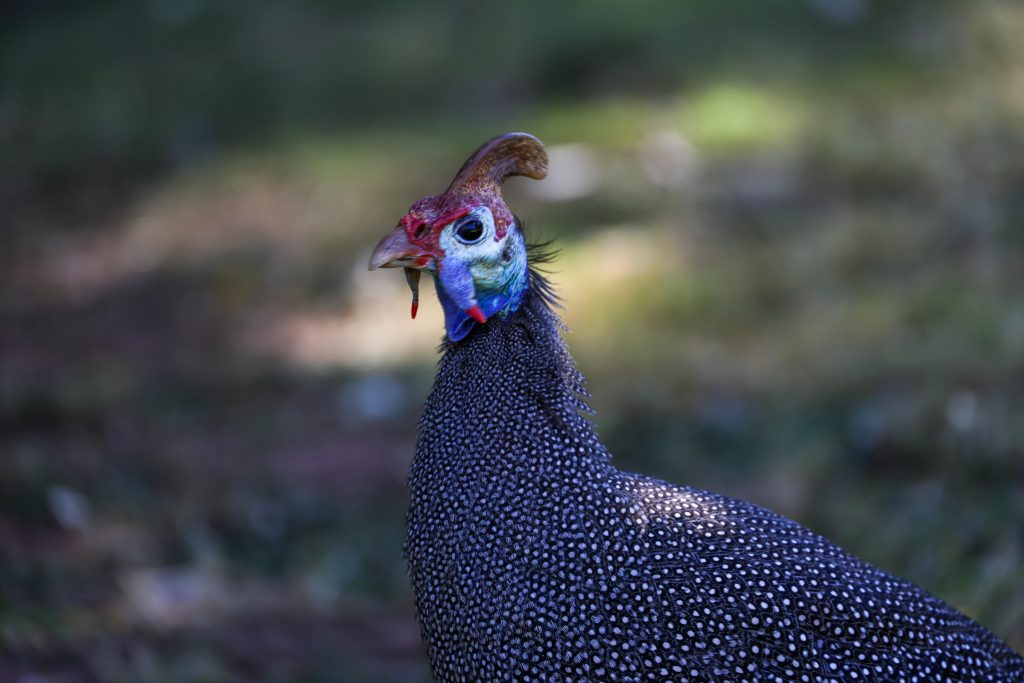
Health and Durability
Guinea fowl are robust but face challenges due to their free-ranging nature.
Common Health Issues:
- Predation: Keets are particularly vulnerable to raccoons, hawks, and snakes.
- Cold and damp conditions can be harmful to young keets if not properly managed.
Preventative Care:
- Raise keets in a safe, controlled environment for the first few weeks.
- Monitor flock interactions, particularly during mating season when males may become aggressive.
- Ensure proper nutrition to support immune function and overall health.
With proper care, guinea fowl can live 10–15 years, making them a long-term commitment for any homestead.
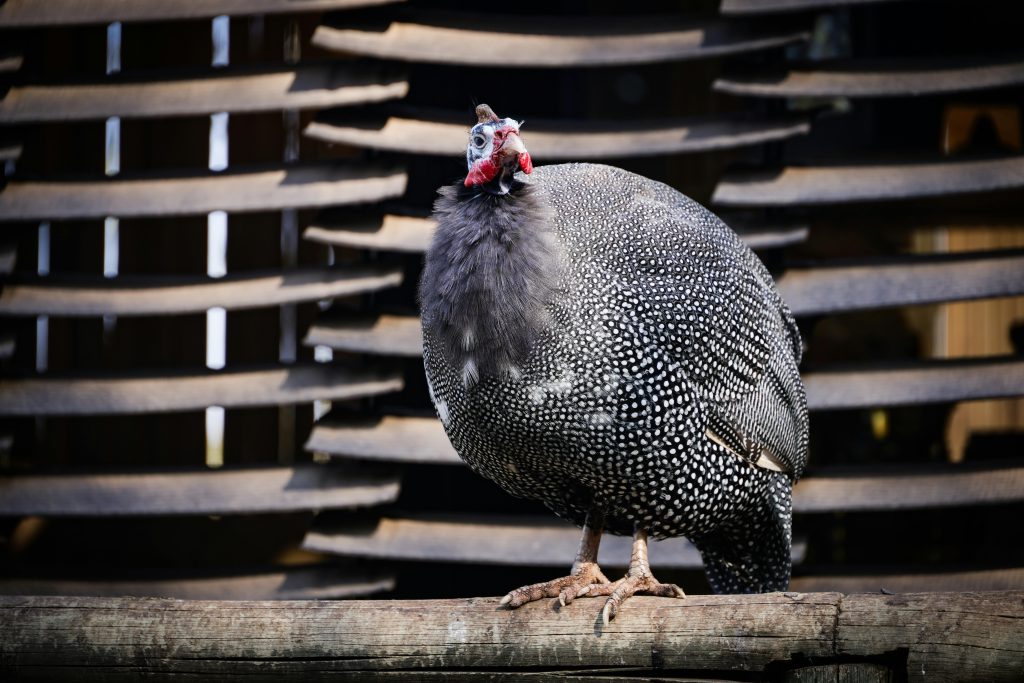
Availability and Cost
Guinea fowl are widely available from hatcheries and specialty breeders, offering a variety of colors and breeds.
Where to Buy:
- Breeders and Hatcheries: Best for healthy birds and hatching eggs.
- Backyard Poultry Expos: Opportunity to meet sellers and select birds.
- Specialty Poultry Stores: Limited selection, but available in some regions.
Cost:
- Day-old keets typically range from $3–$8 per bird, depending on breed and rarity.
- Adult guinea fowl can range from $15–$40 per bird.
- Setup cost for coop, feeders, and waterers ranges from $100–$200 for a small flock.
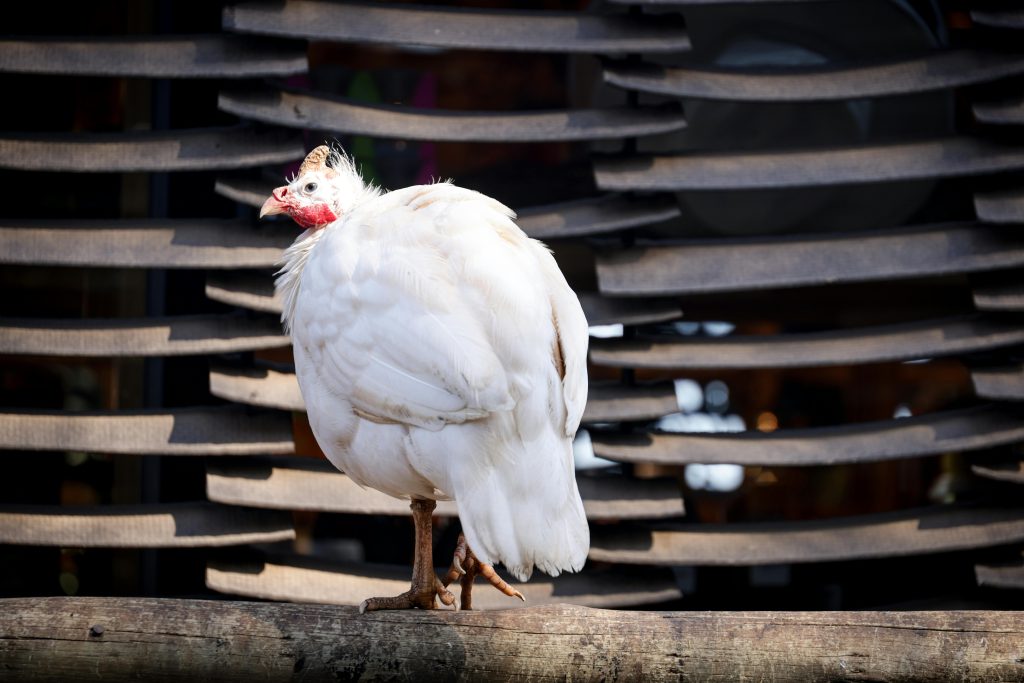
Pros and Cons
Pros:
- Excellent for pest control, including ticks, insects, and small rodents.
- Serve as a natural alarm system for predators and intruders.
- Can coexist with chickens if properly integrated.
- Provide high-protein eggs and lean, flavorful meat.
- Hardy and long-lived with low overall maintenance.
- Distinctive and visually appealing plumage.
Cons:
- Loud and persistent vocalizations may be disruptive, especially in suburban areas.
- Males can be aggressive during mating season.
- Keets and young birds are vulnerable to predation.
- Require space for free-ranging to thrive.
- Eggs are often laid outside the coop, making collection more challenging.
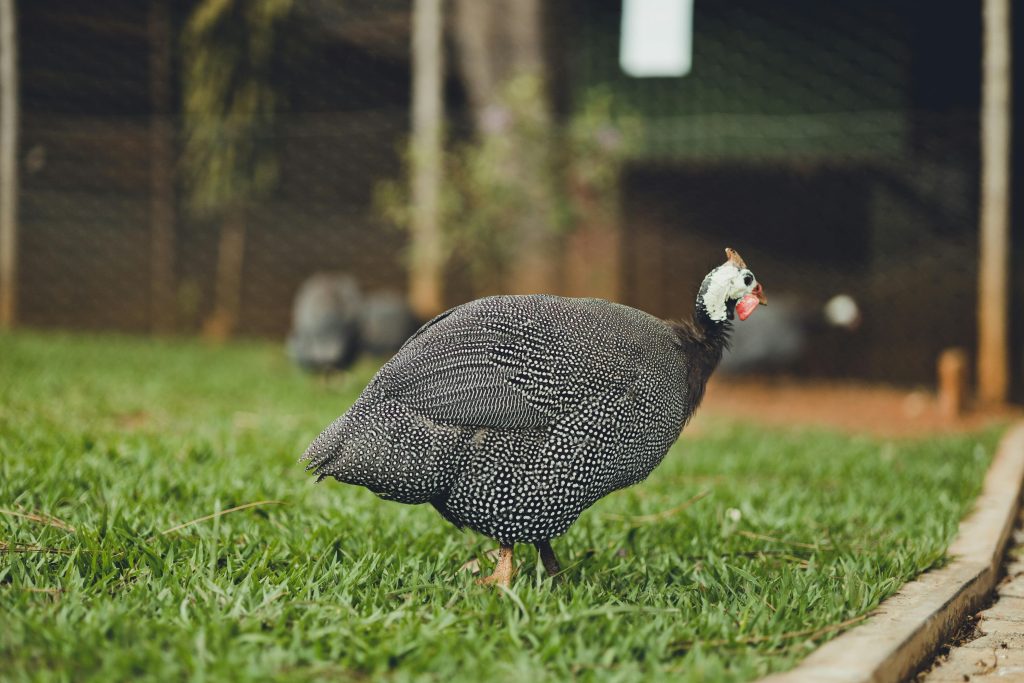
Final Thoughts
Guinea fowl are a fantastic choice for homesteaders seeking a multi-functional bird that offers pest control, entertainment, and unique egg and meat production. Their striking appearance, long lifespan, and lively flock behavior make them a rewarding addition to any backyard poultry setup.
While they require more space and careful management than chickens, the benefits—especially in natural pest control and predator alertness—often outweigh the challenges. For those with enough room and a desire for a distinctive, practical bird, guinea fowl provide both utility and charm.
To get the most out of your flock, consider starting with a small group, raising keets alongside chicks, and providing ample foraging space. Over time, you’ll have a productive, engaging, and resilient flock that adds real value to your homestead.
Have you raised guinea fowl before? Share your experiences and tips in the comments below! We’d love to hear about how you integrate these unique birds into your backyard flock.
For more poultry care guides and reviews, stay tuned to our blog and subscribe to our newsletter! 🐔

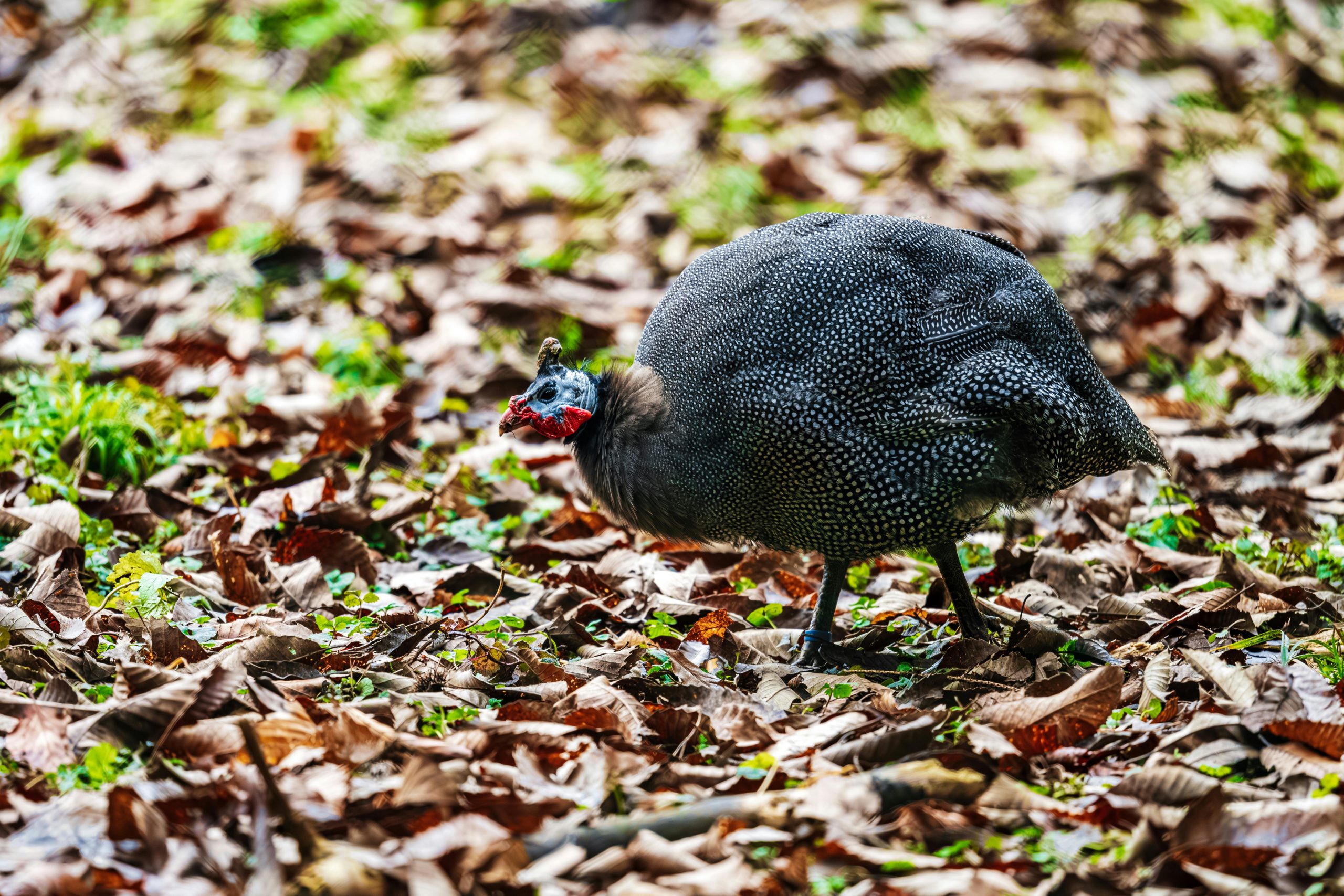

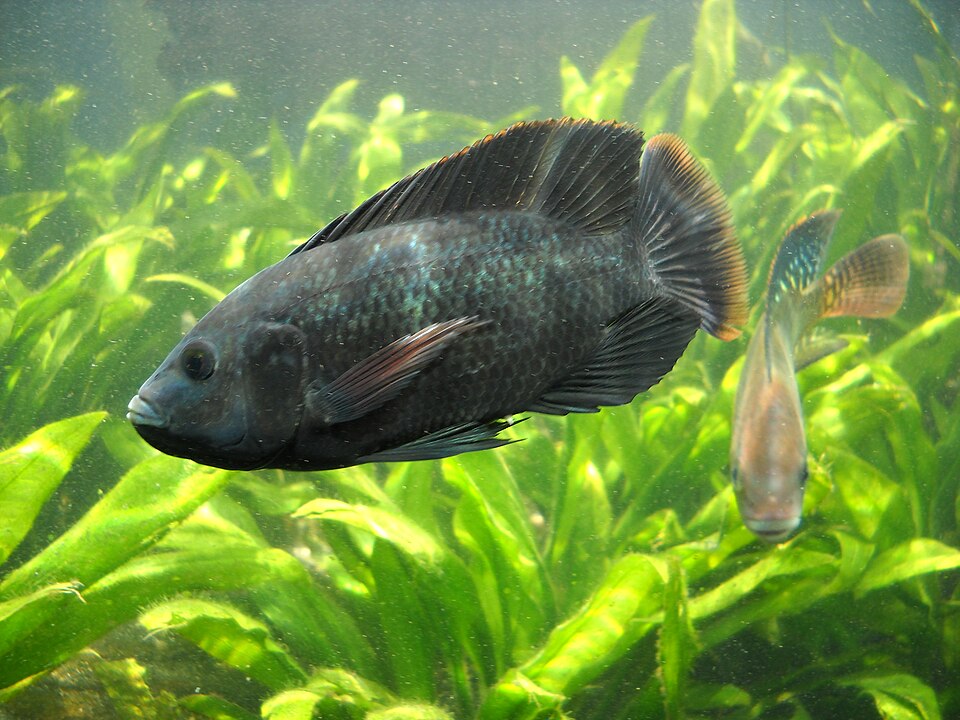
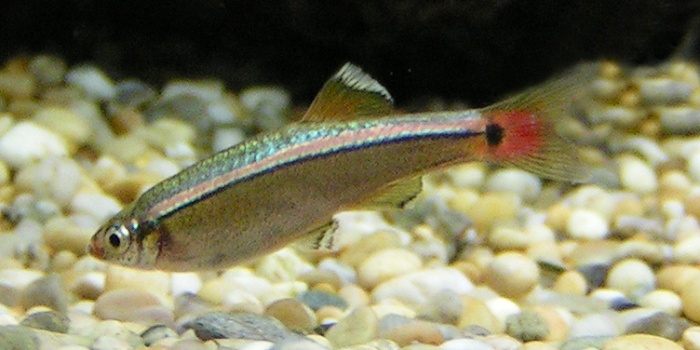
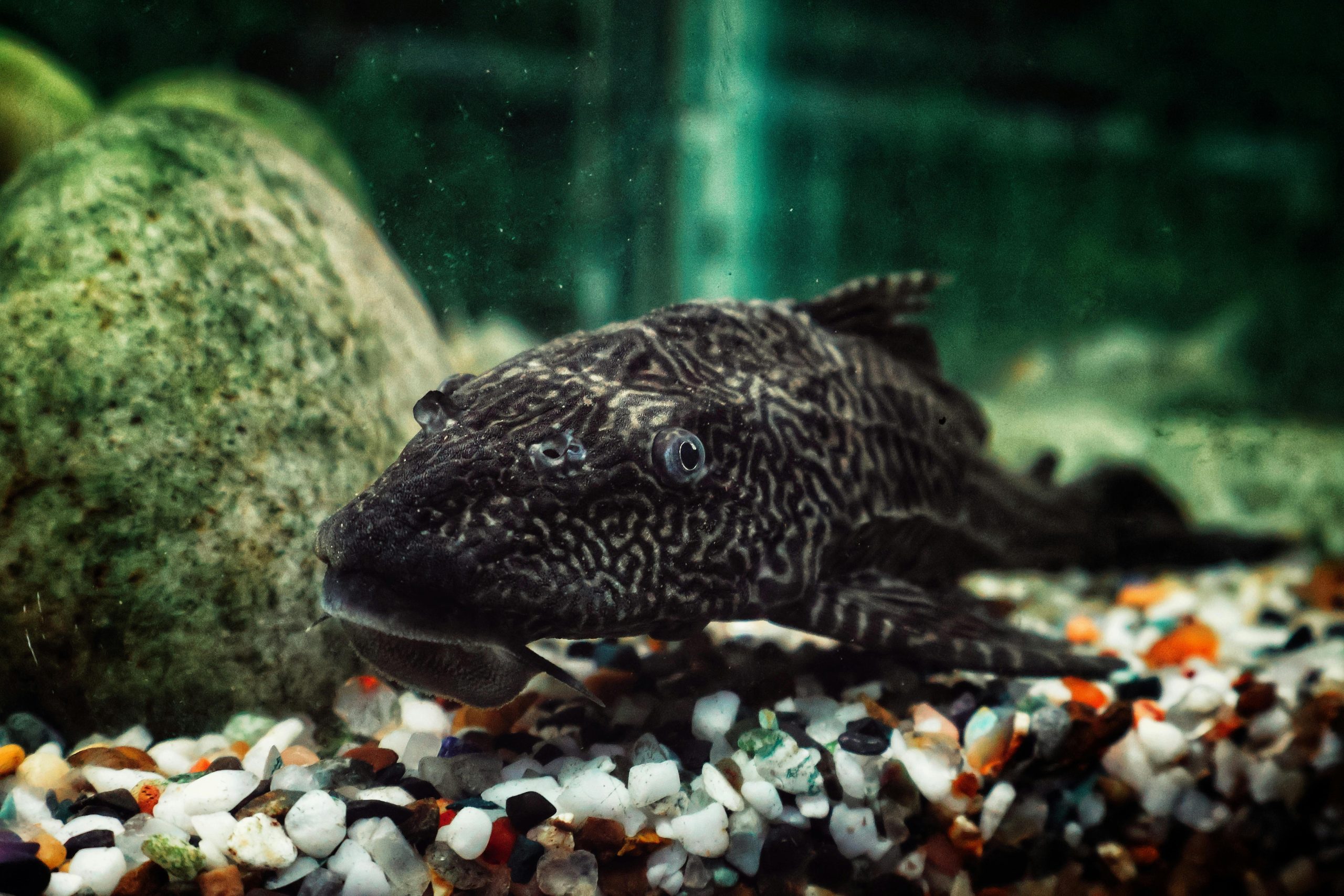
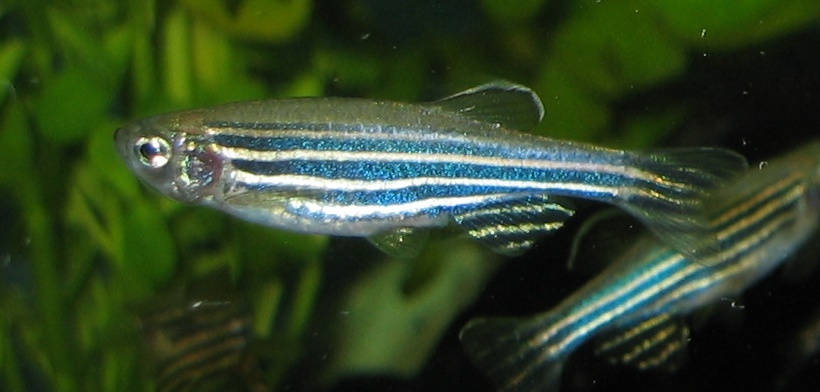
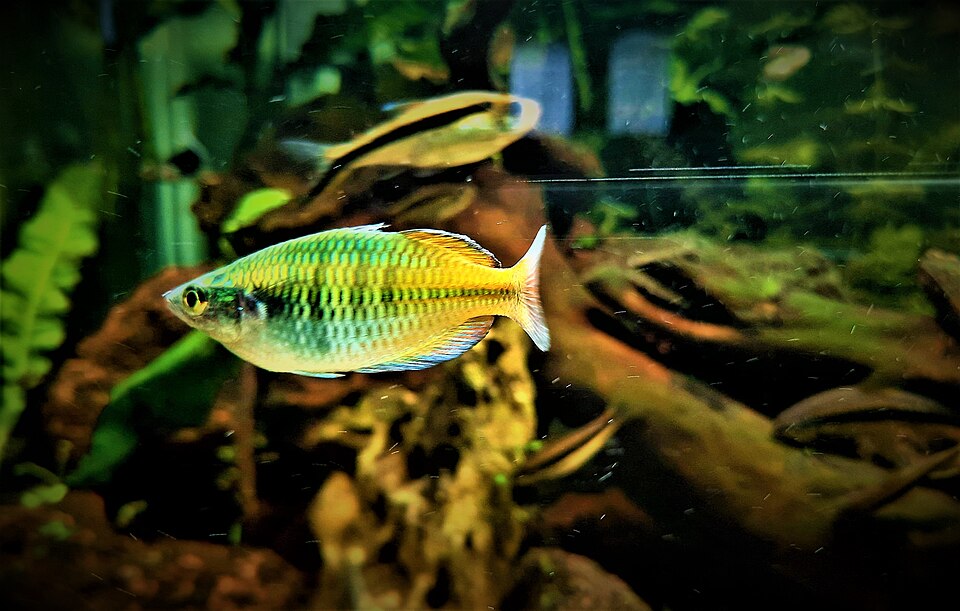
Leave a Reply